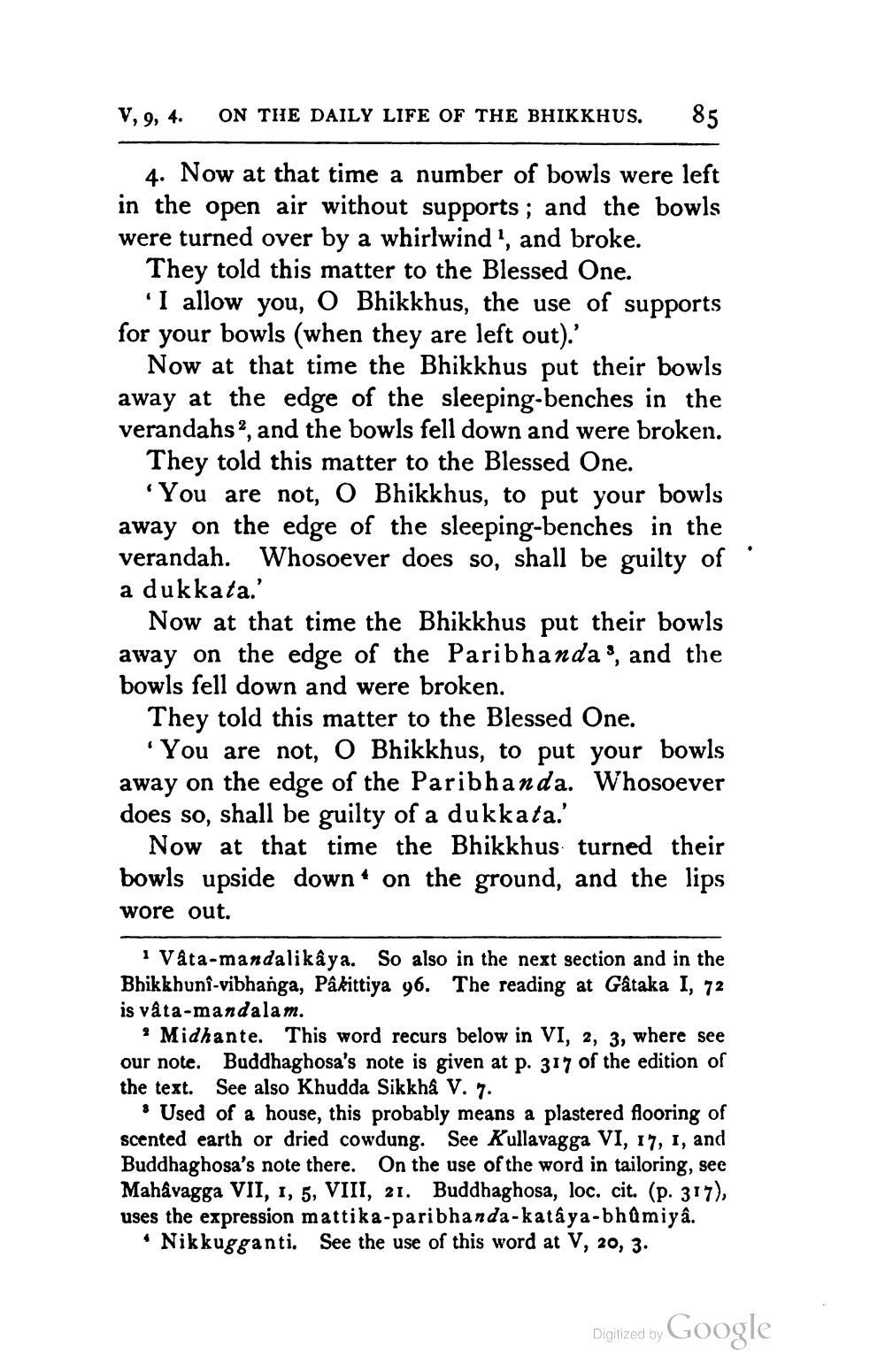________________
V, 9, 4.
ON THE DAILY LIFE OF THE BHIKKHUS.
85
4. Now at that time a number of bowls were left in the open air without supports; and the bowls were turned over by a whirlwind', and broke.
They told this matter to the Blessed One.
I allow you, O Bhikkhus, the use of supports for your bowls (when they are left out).'
Now at that time the Bhikkhus put their bowls away at the edge of the sleeping-benches in the verandahs?, and the bowls fell down and were broken.
They told this matter to the Blessed One.
You are not, O Bhikkhus, to put your bowls away on the edge of the sleeping-benches in the verandah. Whosoever does so, shall be guilty of a dukkata.'
Now at that time the Bhikkhus put their bowls away on the edge of the Paribhanda', and the bowls fell down and were broken.
They told this matter to the Blessed One.
You are not, O Bhikkhus, to put your bowls away on the edge of the Paribhanda. Whosoever does so, shall be guilty of a dukkata.'
Now at that time the Bhikkhus turned their bowls upside down on the ground, and the lips wore out.
1 Vâta-mandalikâya. So also in the next section and in the Bhikkhunî-vibhanga, Pakittiya 96. The reading at Gataka I, 72 is vata-mandalam.
? Midhante. This word recurs below in VI, 2, 3, where see our note. Buddhaghosa's note is given at p. 317 of the edition of the text. See also Khudda Sikkha V. 7.
* Used of a house, this probably means a plastered flooring of scented earth or dried cowdung. See Kullavagga VI, 17, 1, and Buddhaghosa's note there. On the use of the word in tailoring, see Mahavagga VII, 1, 5, VIII, 21. Buddhaghosa, loc. cit. (p. 317), uses the expression mattika-paribhanda-kata ya-bhQmiya.
• Nikkugganti. See the use of this word at V, 20, 3.
Digitized by
Digitized by Google




